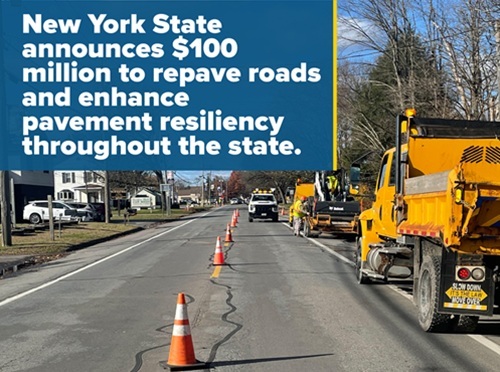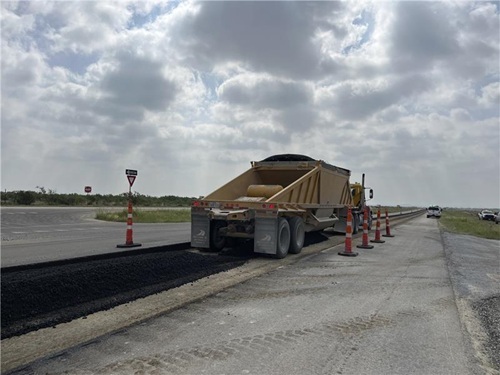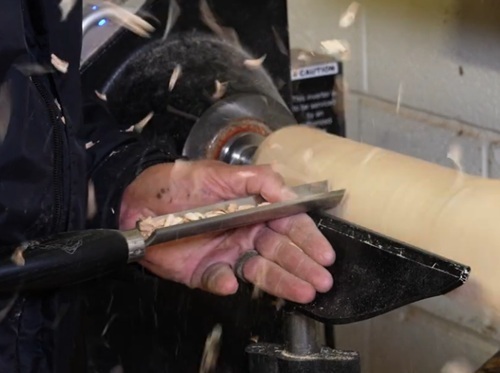Governor Kathy Hochul (D) recently announced a $100 million investment to enhance the resiliency of 551 lane miles of state highway in 70 locations across New York that are being affected by “extreme weather,” partially with funding from the Infrastructure Investment and Jobs Act.
[Above photo by NYSDOT]
“Between extreme heat in the summer, devastating winter storms and the ongoing saga of freeze-thaw cycles, New York’s roads take a pounding from extreme weather in all seasons, and this investment takes direct aim at rejuvenating some of the state highways most impacted by extreme weather,” she explained in a statement. “Keeping our infrastructure in a state of good repair is a sound investment that not only increases resiliency but spurs economic development and tourism across New York.”

“Targeted infrastructure investments not only enhance public safety, but the resiliency and sustainability of New York’s vast network of roads and bridges,” added Marie Therese Dominguez, commissioner of the New York State Department of Transportation. “Smart transportation investments have the ability to bring people and communities together, and that’s just what this investment in our critical infrastructure will do across New York State.”
“Extreme freeze-thaw cycles and devastating flooding like we witnessed last year in the Hudson Valley already lay waste to our roadways, and with these once-in-a-lifetime weather catastrophes only increasing in frequency, we need to strengthen our infrastructure now,” noted Rep. Pat Ryan (D-NY).
Several state departments of transportation are already at work testing a variety of different materials to meet infrastructure construction needs.
For example, the Montana Department of Transportation recently detailed in a video its work with Montana State University to develop a lower cost Ultra-High Performance Concrete or UHPC formula. After years of developing and thoroughly testing a new UHPC formula in the laboratory, the team put it to work when replacing two badly deteriorated concrete bridges in southwest Montana.
Meanwhile, in July, the Illinois Department of Transportation signed a six-year $48 million agreement with the University of Illinois Urbana-Champaign’s Illinois Center for Transportation to continue a longtime joint research program.
That agreement aims to help Illinois DOT solve key transportation challenges, such as creating safer and more sustainable infrastructure, reducing congestion, achieving more equitable transit systems, preparing for autonomous vehicles, and more.
At the top of the list of priorities is developing and implementing next-generation mobility technologies while ensuring a safe, resilient and net-zero emission transportation system by 2050, Illinois DOT said.
 Resilience
Resilience
Where Rubber Meets the Road in Texas – Literally
February 18, 2026 Resilience
Resilience


